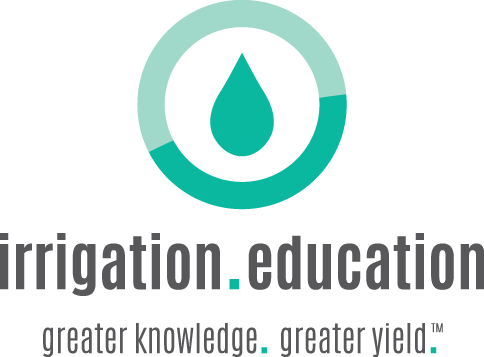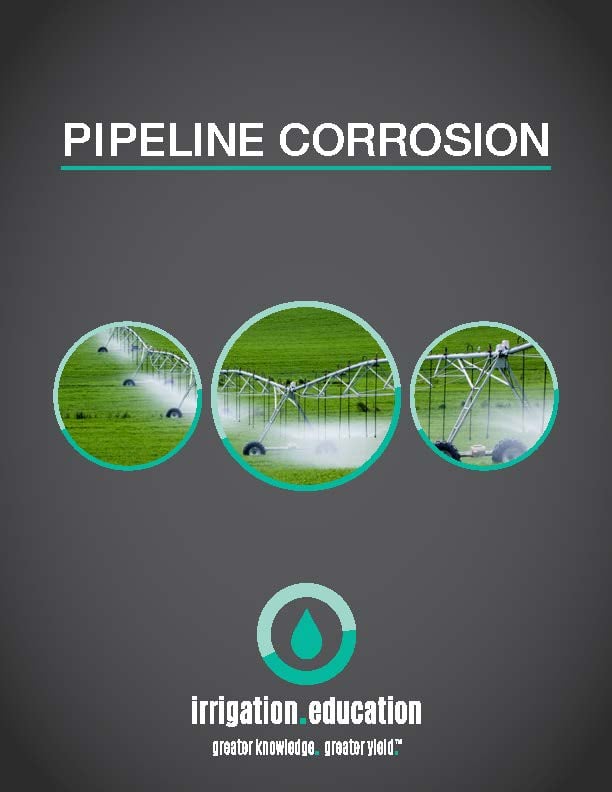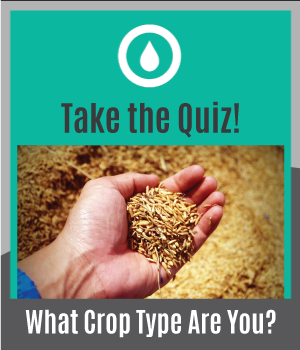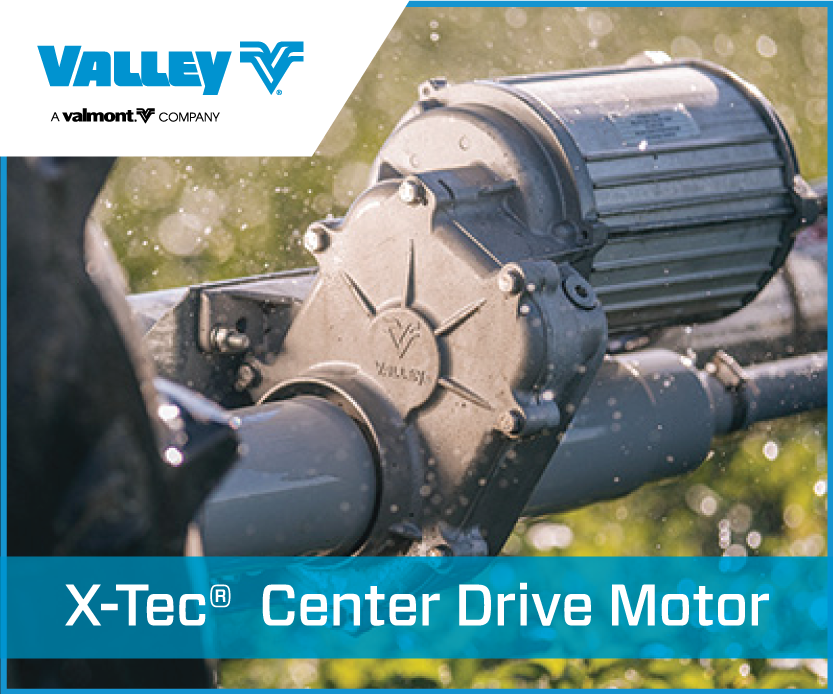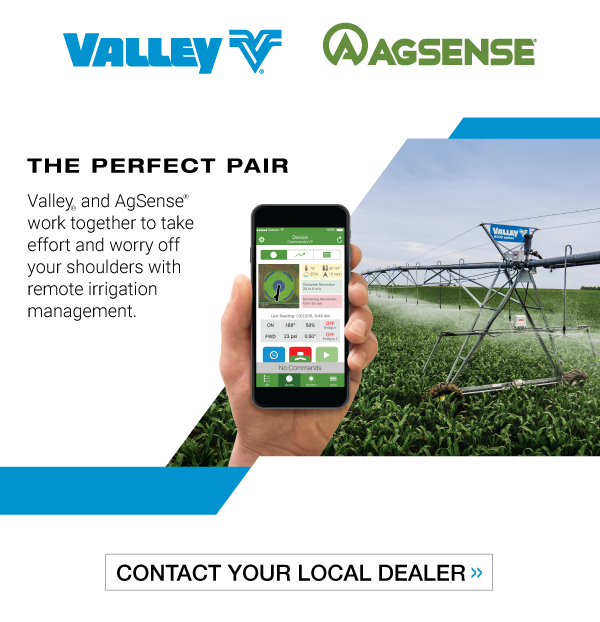A new competition is being played in fields across Nebraska where growers take on University of Nebraska-Lincoln scientists and students to see who can out-farm the other. This competition is called Testing Ag Performance Solutions, or TAPS.
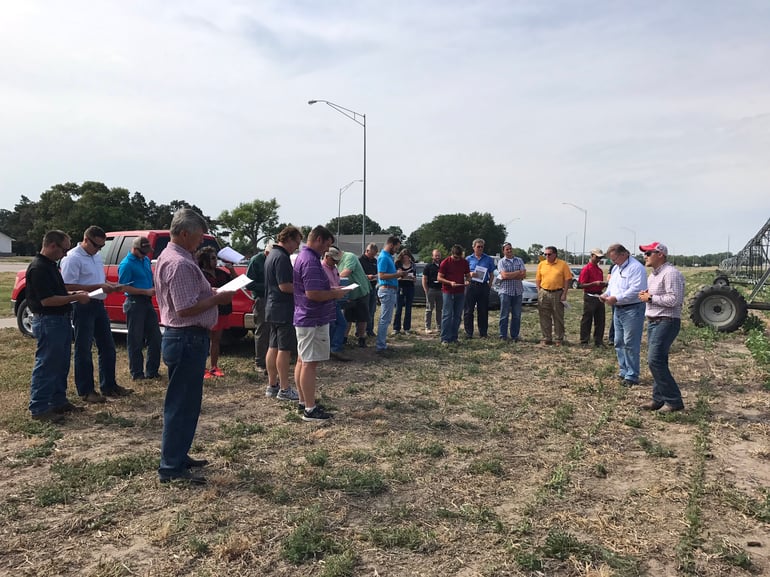
Competitors gather at the TAPS field day at UNL's West Central Research and Extension Center (WCREC) in North Platte on Tuesday, June 27th.
TAPS is being organized by UNL’s West Central Research and Extension Center (WCREC), in partnership with the Nebraska Water Balance Alliance. The corn growing season competition will award prizes for the most economically profitable farm, most efficient use of water and nitrogen, and highest grain yield. Through the sponsorship of thirteen industry partners, six natural resources and irrigation districts, and five non-profit organizations, the contest aims to expand learning opportunities for all contestants.
“We want growers to feel comfortable learning from themselves, their peers, and the university,” says Daran Rudnick, UNL assistant professor of biological systems engineering, who is organizing the competition with Chuck Burr, extension educator; Matt Stockton, associate professor of agricultural economics; and Rodrigo Werle, assistant professor of agronomy and horticulture.
“Ultimately, we want everybody to leave here feeling like they learned at least one thing that made their operation better.”
Over twenty farmers are squaring off against the UNL extensionists and two student teams. During the growing season, all participants have access to university and industry data – including soil maps, aerial imagery and evapotranspiration measurements – to optimize their decision making. In exchange, all competitors must log their management decisions, including insurance selection, nitrogen management, hybrid selection, planting population density, irrigation scheduling, and grain marketing through the project’s internal website. To Rudnick, the knowledge generated by the competition will spiral outward, like the droplets of water that spread through a center pivot.
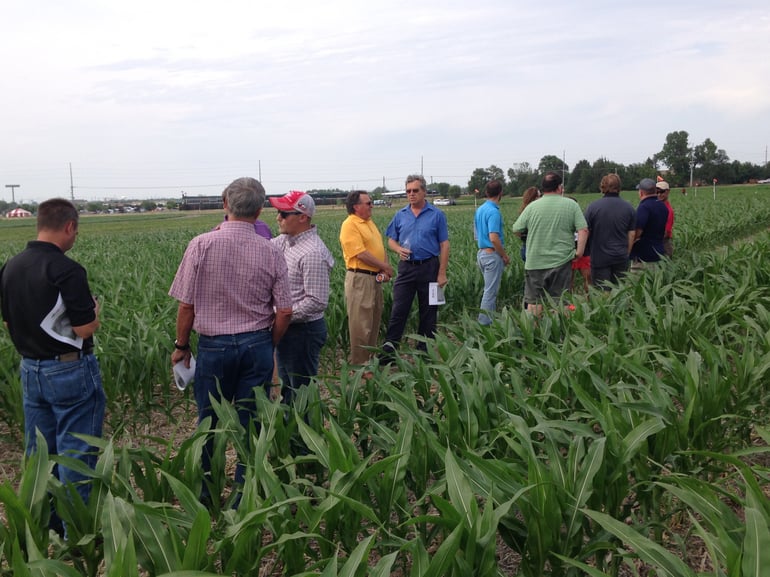
“This is an extension engagement project—we want growers to learn as we do. As researchers, this is an opportunity to evaluate these management projects, these technologies, and it gives us an opportunity to talk with others in the industry about how these are working in the field.”
Though largely an individual competition, the purpose of TAPS is for growers and scientists to share knowledge and best management practices. This is what will take place at the first annual TAPS field day on August 24th at the WCREC in North Platte. The schedule that day features a growers’ panel and a tour of the competition’s plots.
On January 15, 2018, the prizes for most profitable farm, highest input use efficiency and highest grain yield will be awarded at an annual banquet. But for Rudnick, who is also a faculty fellow with the Daugherty Water for Food Global Institute, the TAPS competition does not end there.
Accentuating longer-term plans, he says, “Personally, we would like to expand it to look at different crops and different constraints. We could look at crop rotations and diverse topography. It’s a long, innovative, engaging process, which is well-suited for producer-to-producer learning.”
If you would like to learn more about what you can do to make your operation better, log in to irrigation.education and take the Variable Rate Irrigation Overview and Gaining Additional Acres with Corners, Benders, and DropSpans courses today!

 Jesse Starita, Education/Outreach Associate
Jesse Starita, Education/Outreach AssociateJesse Starita engages citizens, scientists, students, producers and policymakers on local and global water and agriculture issues. Through videos, articles, photography, interviews and outreach events, he publicizes the activities of the Water for Food Global Institute and Nebraska Water Center. Starita also coordinates the institute’s Water Advanced Research and Innovation Fellowship Program (WARI), an exchange program between young water scientists from India and the University of Nebraska-Lincoln.

